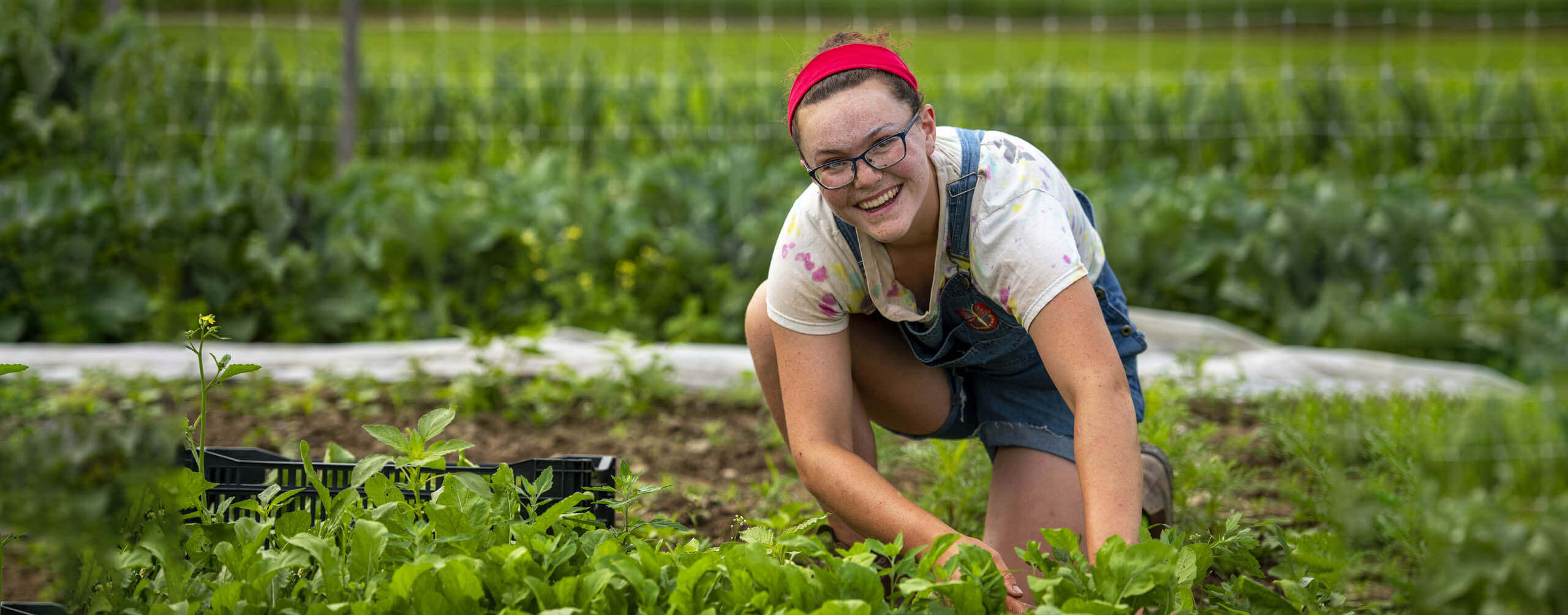
Sustainable Agriculture
College of Earth, Life, and Health Sciences
The Bachelor of Science in Sustainable Agriculture is designed for students interested in working in the growing field of ecologically-based agriculture in areas of production, research and education. UMaine’s program was the first Sustainable Agriculture program in the country.
The sustainable agriculture program at the University of Maine offers a Bachelor of Science degree that provides students with the scientific background and hands-on experience needed to lead fulfilling and impactful professional lives in fields related to sustainable food, agriculture, or other natural resource management sectors and to succeed in early-career positions in sustainable agriculture, natural resource management, or research.
The program emphasizes: building healthy soil through crop rotations; organic soil amendments; erosion management; protecting water quality by reducing synthetic chemical use; pest and weed management using integrated, ecologically sound approaches; increasing farm profits; income stability through diverse, community-based enterprises; use of scientific principles to propose and test farming practices that better mimic natural ecosystems.
Our faculty are student-centered, approachable and encouraging. They are engaged with undergraduate students and often involve them in their research programs. They are recognized experts in sustainable agriculture in the state, nationally and internationally.
With this degree, students can lead impactful professional lives in fields related to sustainable food, agriculture or other natural resource management sectors. Graduates have been employed as organic or sustainable farm managers, self-employed market farmers, research technicians, sales and marketing professionals for food retailers, educational outreach leaders and in community based nonprofit organizations. Students supplement classroom learning by putting their knowledge to use in real-life situations through their field experience and capstone service learning class. Students select their own internship or job opportunity to gain practical work experience that best suits their career goals, with guidance and support from experienced faculty.
The University of Maine’s Honors College, one of its signature programs of excellence, has formed a Sustainable Food Systems Research Collaborative (SFSRC). The SFSRC brings together students, faculty and community partners in an interdisciplinary approach to solving problems of food production, food distribution and hunger. The problems posed by community partners are addressed through students’ honors theses, with UMaine Honors faculty and other UMaine professors serving as thesis advisors and mentors.
Bryan Peterson
Interim Undergraduate Program Coordinator
Deering Hall, Room 418
207.581.2918 | bryan.j.peterson@maine.edu
Sustainable Agriculture
College of Earth, Life, and Health Sciences
Rogers Hall
207.581.2947
